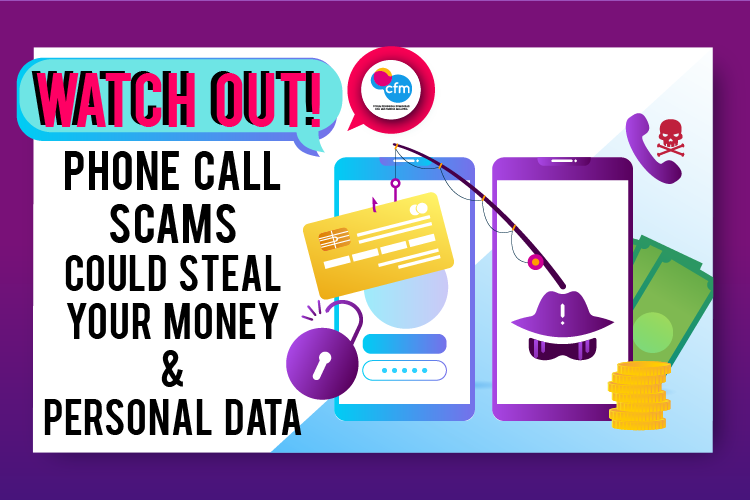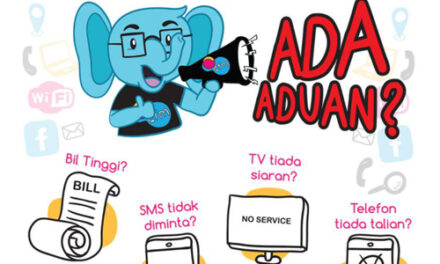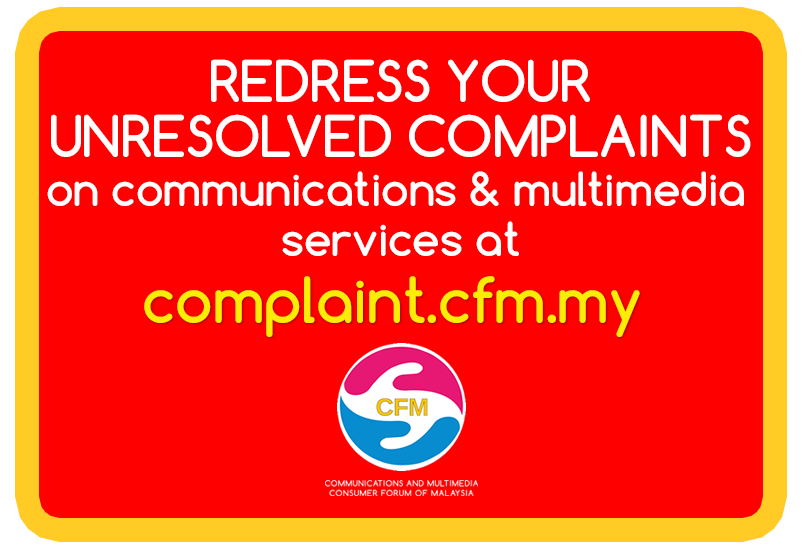
In today’s highly connected digital world, phone calls remain an important way to communicate. We call to connect with family and friends, make appointments, and get support for the products and services. The scammer also believes the telephone is the easiest way to target victims. Phone call scams are on the rise and many have been victimized as reported in the news.
What is a scam call?
- Definition of scam from Cambridge – dishonest activity or an illegal plan for making money, especially one that involves tricking people.
- Definition of scam from Oxford – a clever and dishonest plan for making money.
- Definition of scam from Wikipedia – a confidence trick is an attempt to defraud a person or group after first gaining their trust.
Scam can be defined as a fraudulent activity through illegal and unethical means with the goal of stealing your money, personal details, or identity by offering an attractive deal or false information.
A scammer is someone who pretends to be from a well-known company, financial institution, or government agencies who makes money using illegal method.
How to Recognize a Scam Call?
Scam calls come in many forms, but they tend to make similar promises and threats or ask you to pay certain ways. It may be hard to immediately identify an unprompted caller’s intentions. However, these are common denominators and phrases you should look out for when identifying a scam call.
- You have to make up your mind right away.
Take your time. You don’t need to decide now. Most legitimate businesses will give you time to think about their offer over and get written information about it before asking you to commit. Don’t get pressured into making a decision on the spot.
- Request for your personal data.
The company, financial institution or government agencies aren’t calling to verify or confirm confidential or sensitive information. Never give out personal information such as bank account number, mother’s maiden names, passwords or other confidential information such as CVV code on credit or debit card, TAC number in response to unexpected calls or if you are at all suspicious. If the caller asks for this, hang up, as it’s certainly a scam.
- You’ve been specially selected for this offer.
The caller might say you were “selected” for an offer or claim you have won a prize, contest, or other items of value but need you to provide details of your bank account or make some payment to facilitate the claims process.
- Please collect your delivery parcel.
You receive a call from someone claiming to be your mail carrier or a parcel delivery service saying that they were unable to deliver a package to your home. If you don’t remember ordering anything that needs to be delivered, the caller may try to convince you the package is a gift from a friend or relative. The caller may sound friendly and professional, making the scam harder to spot.
- This investment is low risk and provides a higher return.
Callers might promise to help you start your own business and offer business coaching, or guarantee big profits from an investment. Don’t take their word for it. Remember the rule – if it sounds too good to be true, it’s probably a lie.
- There’s a problem with your computer.
The caller contacts you out of the blue and claims there’s a problem with your computer. They can fix this remotely for free and you will be asked to download remote access software, and if you do, they will have full access to your computer and any information held on it. Another example would be they may place a virus on your computer before offering to sell a solution to fix it. Unsolicited technical support personnel who ring you up to inform you of computer problems are likely not legitimate.
- Unexpected gifts of money and windfalls
Another way for scammers to entice you to fall for their scam is to convince you that you have inherited or been given a large sum of money by a distant relative or a wealthy benefactor. The scammer usually poses as a lawyer, banker or other foreign official, and claims that the deceased left no other beneficiaries. You will be told that your supposed inheritance is difficult to access due to government regulations, taxes or bank restrictions in the country where the money is held, and that you will need to pay money and provide personal details to claim it. If you make a payment, you won’t receive the sum of ‘inheritance’ money promised to you, and you won’t get your money back. These scammers often also seek personal information such as identification or birth certificates. If you provide this information you may also leave yourself open to identity theft. If still in doubt, get some legal advice on this to avoid losing money.
What are the implications?
Although anyone can fall prey to a scam call, regardless of age, gender, education or economic background. For an older person on a fixed income, a scam can have a devastating financial and emotional impact. Some people sadly lose their entire life savings; although the loss or relatively small amounts can still have devastating consequences. There is no real way to tell for certain if an opportunity is legitimate. The things we consider as signs a company or person is trustworthy are the same things scammers imitate. So, it is important to keep yourself safe from scams and learn the scammers’ tactics.
How to Respond to a Scam Call
What should you do if you get such a call?
- Hang up the phone immediately.
Don’t engage with the caller, even if you know it’s a phone scam and you think it would be fun to irritate the caller. Having a conversation only proves that your number is attached to a live person. You’ll be bombarded with more calls in the hope that you’ll fall prey to one of the scams.
- If you are already in a conversation, create an excuse to put down the phone.
Scammers will always try to get you talking to them as long as possible to wear you down in the hope of getting the info they want. One way to terminate the call politely is to inform the caller that you have to leave immediately and you will call them back or they can call back. Provide credible reasons such as your immediate need to go to the washroom, your boss is calling you, you have something burning on your stove, you have another call waiting from your sick parent or family member, etc. The most important thing is to stop the conversation!
How Do I Protect Myself?
Here are some other things to keep in mind when dealing with phone scammers:
- Don’t pick up calls from numbers you don’t recognize.
- Hang up on suspicious phone calls. Scammers work hard to appear trustworthy, and it’s good to do some research or thinking before you engage with a person or opportunity.
- Don’t trust unexpected contacts. Scams most often come through cold calls, e.g. an unexpected phone call or email. Always take steps to find out more before considering any offers.
- Don’t agree to any offer for which you have to pay a “registration” or “shipping” fee to get a prize or a gift. Ask yourself how likely it is that you have been specially chosen for this offer; thousands of other people will probably have received the same offer
- Stop, think and be sceptical. If something sounds too good to be true it probably is.
- Resist demands to act quickly. Anyone presenting a legitimate opportunity will allow you time to consider your response. If you feel under pressure, take some time or turn it down.
- Don’t trust your caller ID. Scammers can change the phone number that shows up on your caller ID screen. This is called “spoofing”. Technology today makes it possible to mimic companies or government agency phone numbers or local phone numbers even if the scammer is based halfway across the world.
- Don’t provide your credit card number, bank account information, or other personal or confidential information to the caller.
- Never transfer money to a government agency. Call your bank directly and cancel any recurring payments if it happens.
- Do your research. Find online to look into the names of people, companies, business opportunities, charities, or travel packages being offered by the caller.
- Don’t say anything if a caller starts the call asking, “Can you hear me?” This is a common tactic for scammers to record you saying “yes.” Scammers record your “yes” response and use it as proof that you agreed to a purchase or some credit card charge. Even if it looks like the call is from someone you know, rephrase your answer to “I hear you just fine” to be safe.
- If the caller claims to be from a bank, company or government agency, take their name and ask if you can call them back. Call the contact phone number listed on a trustworthy source, e.g. a bank statement, bank card or official website. A scammer will typically try to keep you on the phone, while a legitimate service provider will be happy to receive a call-back.
- Block phone numbers that you know are suspicious or similar. Genuine organisations would contact you in other ways if they are unable to reach you via telephone.
- Block unwanted calls by installing call-blocking or call-labelling apps in your mobile phone to block suspicious or fraudulent callers based on crowd sourcing info. Which type of call-blocking or call-labelling technology you use will depend on the phone whether it’s a mobile, landline, or a home phone that makes calls over the internet (VoIP).
How Do I Get Help
Follow these steps if you have been caught in a scam call:
- Stop all contact with the scammer.
Once you realise you are being scammed, do not continue the conversation. Hang up the phone. Don’t reply to emails or letters scammers have sent you afterwards. If you have been scammed online, block the scammer from contacting you.
- Do not make any more payments.
Don’t give money to anyone on the promise they will get your lost money back. Unfortunately, if you have paid scammers, the chances of recovering your money are not good.
- Contact the bank or service you sent money through.
If you are the victim of a financial scam, credit card scam or identity theft, contact your bank immediately. They will have a policy in place to deal with fraud. If you have sent money through another bank or transfer service, it’s a good idea to contact the service you used.
- If you paid a scammer with a credit or debit card, you may be able to stop the transaction. Contact your Credit Card Company or bank right away. Tell them what happened, and ask for a “chargeback” to reverse the charges.
- If you paid a scammer with a gift card, prepaid card, or cash reload card, contact the company that issued the card right away. Tell them you paid a scammer with the card, and ask if they can refund your money. The sooner you contact them, the better the chance they’ll be able to get your money back.
- If you paid a scammer with a wire transfer (MoneyGram, Western Union, etc.), call the money transfer company immediately to report the fraud and file a complaint. Ask for the money transfer to be reversed. It’s unlikely to happen, but it’s important to ask.
- Report the scam call to the authorities.
Reporting is an important step. It puts you in touch with someone who can give advice specific to your situation. Report the number that appears on your caller ID even if you think it might be fake and any number you’re told to call back. It also helps other people avoid this kind of scam. Call scam is an offence under Section 420 of the Penal Code which is Fraud. If anyone has been a victim please file a report to the police. The Malaysian Communications and Multimedia Commission (MCMC) will only act upon receiving instructions from the PDRM.
- Assess your security at home and online.
If personal or financial information has been given out or stolen in a scam, change all of your online passwords on a secure device not linked to the scam. Use a different password for each account. If your computer or phone has been hacked in a scam, take it to an authorised and trusted technician to be cleaned.
- Equip yourself to recognise scams.
Anyone can be caught unaware by a scam call. Take time to learn about the approaches scammers use and how you can protect yourself.
- Talk about what happened
Telling your friends and family about the scam is one of the best ways to take action. It can be hard, but sharing your story is worthwhile because scammers rely on people being secretive. Every person you talk to will be better prepared to avoid scams in the future.
Where Do I Get More Other References Information
For consumer alert and updates on scam, you may check below websites:
- Communications and Multimedia Consumer Forum of Malaysia (CFM)
https://www.consumerinfo.my/beware-dont-phone-scam-victim/
- Malaysian Communications and Multimedia Commission
https://www.mcmc.gov.my/en/media/press-releases
- Royal Malaysia Police
https://www.rmp.gov.my/scam-alert
http://ccid.rmp.gov.my/semakmule/
- Central Bank of Malaysia (BNM) https://www.bnm.gov.my/index.php?lang=en&ch=en_financialconsumeralert
Other References
- Australian Competition and Consumer Commission
https://www.scamwatch.gov.au/types-of-scams
- United States Government
https://www.usa.gov/common-scams-frauds
- Scam Alert – Singapore














